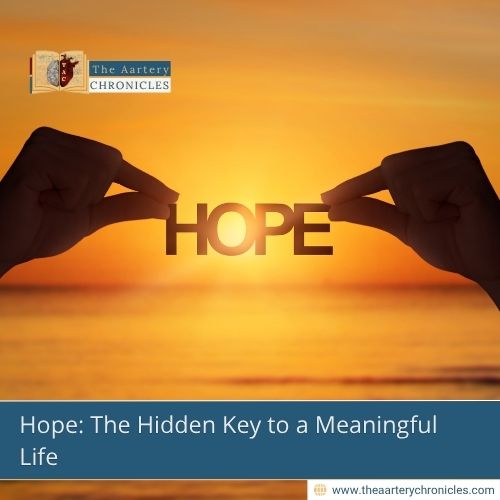

Hope: The Hidden Key to a Meaningful Life
Summary: Hope, often overshadowed by happiness and gratitude, is emerging as a key emotional driver of a meaningful life. According to University of Missouri researchers, hope consistently outperforms other positive emotions in predicting life meaning and remains an essential component of mental well-being. Cultivating hope daily can reshape your outlook, build resilience, and lead to greater overall life satisfaction.
Can any emotion give your life meaning more than happiness or gratitude? New research says yes ... it’s hope.
Hope isn’t just wishful thinking. It’s a powerful, measurable emotion and perhaps one of the most essential drivers of psychological well-being. According to a groundbreaking new study from the University of Missouri, hope may contribute more to our sense of life’s meaning than even happiness or gratitude
In a world that often prioritizes success and satisfaction, scientists are now spotlighting hope as the emotional cornerstone of a purpose-driven life.
The Science Behind Hope: More Than Just Positive Thinking
For decades, psychologists have tied hope to goal-setting and motivation. But researchers Megan Edwards and Laura King from the University of Missouri’s Department of Psychological Sciences believe that definition is too narrow.
“Our research shifts the perspective on hope from merely a cognitive process related to goal attainment to recognising it as a vital emotional experience that enriches life’s meaning,” — Megan Edwards, PhD, Duke University.
Their research, spanning six studies and involving over 2,300 participants from diverse backgrounds, revealed a striking pattern: hope was the only emotion that consistently predicted a stronger sense of meaning in life.
They tested various emotions, but none had the consistent predictive power of hope, such as
- Amusement
- Excitement
- Happiness
- Contentment
Psychological and Real-Life Impact of Hope
Experiencing meaning in life doesn’t just feel good; it influences critical aspects of living. As Dr. Laura King, Curators’ Distinguished Professor of Psychological Sciences, points out:
“Experiencing life as meaningful is crucial for just about every good thing you can imagine in a person’s life”.
From better relationships and higher income to stronger mental and physical health, the presence of meaning in life is a powerful predictor of long-term well-being. And hope is the emotional fuel that sustains it.
How to Cultivate Hope in Everyday Life
The researchers offer simple, science-backed strategies to help people build more hope and, by extension, more meaning in their lives:
1. Appreciate the Small Wins
Instead of only focusing on future goals,
- Take time to notice and savour positive moments, no matter how minor it is.
- This builds emotional momentum.
2. Embrace Uncertainty with Opportunity
In chaotic or unpredictable times, seize small chances to move forward. It could be
- A small project
- A new habit
- Helping someone else
3. Recognize Growth and Potential
Notice your progress, and that of others. Believing in the potential for change can naturally cultivate hopeful thoughts.
4. Engage in Nurturing Activities
Caring actions symbolise future growth and create a sense of investment in tomorrow, such as
- Planting a tree
- Mentoring
- Raising a child
5. Remember: Nothing Is Permanent
Hard times do not last forever. Simply believing in the possibility of change is the foundation of hope and the start of a meaningful shift in perspective.
What the Future Holds: Digging Deeper into Hope
According to Edwards and King, we’re only beginning to understand the true scope of hope’s power. Future studies aim to examine how hope functions during extreme adversity, such as illness, trauma, or major life transitions.
“The goal is to develop strategies that help people stay hopeful and find meaning, even when facing adversity,” said Edwards.
Conclusion: Hope Is More Than a Feeling - It’s a Lifeline
Hope isn’t a fluffy emotion or an unrealistic wish; it’s a core driver of
- Meaning
- Resilience
- Well-being
And unlike other emotional states, hope is accessible to everyone, every day. With the right mindset and habits, you can nurture hope and build a life filled with purpose, even when times are tough.
Reference: Edwards, M. E., Booker, J. A., Cook, K., Miao, M., Gan, Y., & King, L. A. et al. Hope as a meaningful emotion: Hope, positive affect, and meaning in life. APA PsycARTICLES: Journal Article

Dane
I am an MBBS graduate and a dedicated medical writer with a strong passion for deep research and psychology. I enjoy breaking down complex medical topics into engaging, easy-to-understand content, aiming to educate and inspire readers by exploring the fascinating connection between health, science, and the human mind.








